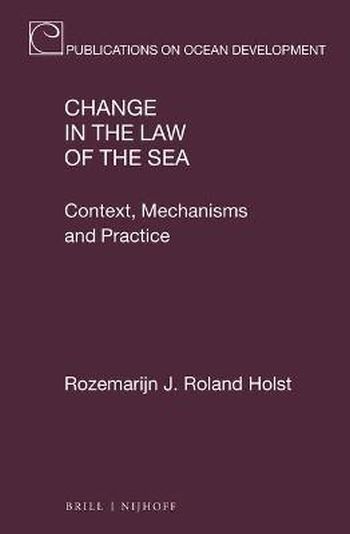We are now closed for the Christmas and New Year period, returning on Monday 5th January 2026. Orders placed during this time will be processed upon our return on 5th January.

The oceans provide a vivid illustration of the relationship between an ever-changing context and a formalistic legal framework. The 1982 UN Convention on the Law of the Sea, hailed as one of the greatest achievements of international law-making, is confronted with dramatically different present-day exigencies. Change in the Law of the Sea provides an analysis and synthesis of the mechanisms that allow this 'old' treaty to respond to its contemporary context, shining new light not only on how change occurs in international law, but also on how the sources of demand for change are themselves changing.